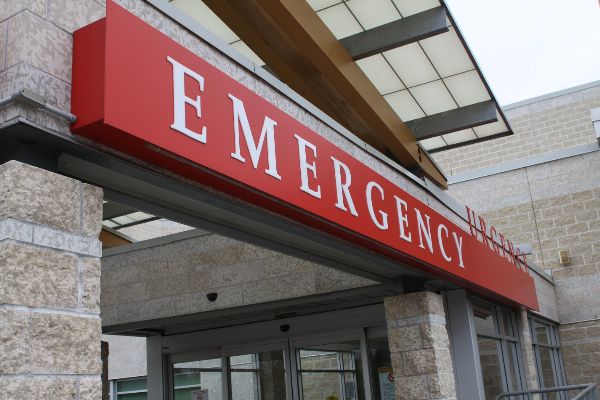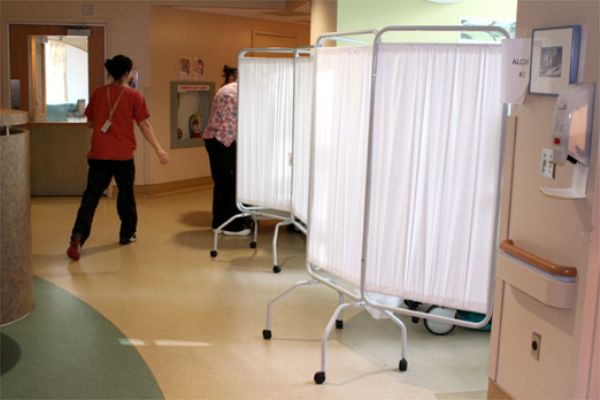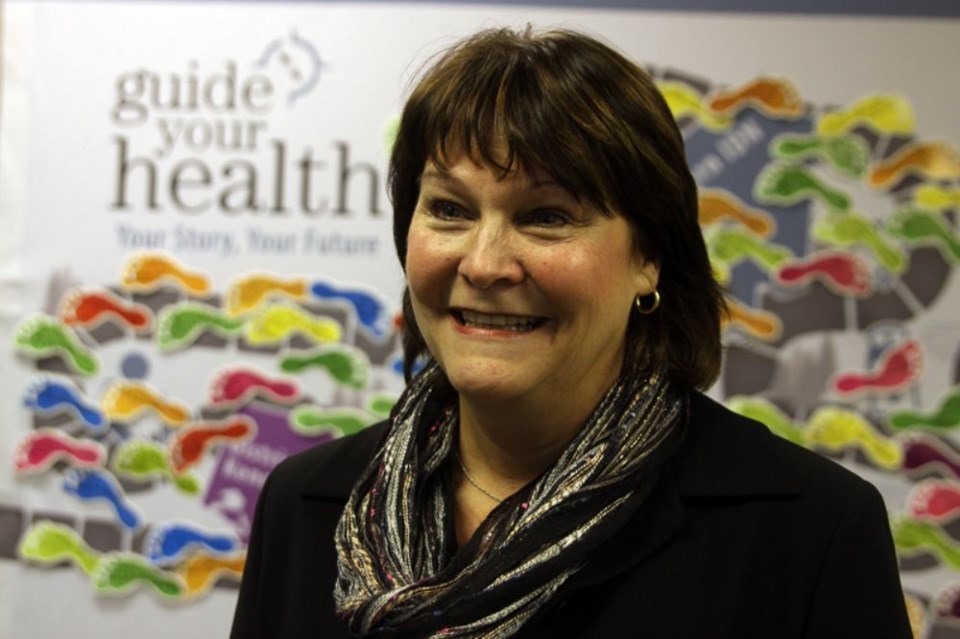Pieces already exist to improve outcomes in this region’s health-care system, say officials with the North West Local Health Integration Network.
The North West LHIN released its fourth three-year Integrated Health Service Plan last week, a result of system surveillance and some 30,000 conversations with patients from Kenora to Manitiouwadge.
Between 2016 and 2019, the health-care planning organization will concentrate its efforts on integrating mental health services, improving access to physicians and increasing homecare.
“It is a heavy burden and it doesn’t happen overnight. It’s about the next three years and how can we start to shift that with the money that we have?” posed the LHIN’s senior director of health system transformation, Susan Pilatzke.
“We’re very well aware of the economic climate in Ontario and we have a lower population here but we have a high degree of illnesses at earlier stages and not as healthy a population. It’s using those resources very differently.”
Integration success will be determined through a series of indicators that now show Northwestern Ontario is falling short of the regional provincial average.
The plan aims to divert patients from emergency rooms and alternate level of care beds when possible as well as decreasing repeat emergency visits and shortening hospital stays.

Health care’s future in Northwestern Ontario will rely more on telemedicine, home care visits and alternatives to emergency room care, which will be facilitated with an improving e-health record system.
“We know how busy the emergency department is here in Thunder Bay at times,” Pilatzke said.
“If there was a walk-in clinic or an after-hours clinic or a weekend clinic or maybe a lab, maybe I’d go there instead of going to the emergency department. We’re not saying people shouldn’t go there if their needs are so acute that they need to be in emerge for a longer period of time but if I have a cold and need some antibiotics, another way might be to go to a walk-in clinic.”
Mental health services arose as a central concern in the LHIN’s public consultations and statistics tell the story.
Northwestern Ontario is spending $190 per capita to treat those with mental health issues, more than double the $78 provincial average.
Likewise, those with mental health concerns are being admitted to emergency rooms at a rate of 37.5 per 1,000 citizens compared to Ontario’s average of 16.4 per 1,000. More adults are being admitted to mental health units and on average, they’re staying for longer.
Part of Pilatzke’s plan is to study the region’s unique mental health needs but she praised the system’s “early adopters,” organizations that have voluntarily merged.
 Those include the Canadian Mental Health Association and Sunset Country Psychiatric Survivors in Fort Frances or Grace Haven’s 2012 merger with Patricia Gardens in Dryden.
Those include the Canadian Mental Health Association and Sunset Country Psychiatric Survivors in Fort Frances or Grace Haven’s 2012 merger with Patricia Gardens in Dryden.
As the prevalence of dementia is predicted to increase 19 per cent by 2020, those integration efforts may increasingly overlap with senior services.
Local integration became central to LHIN planning between 2012 and 2015 when the LHIN introduced the concept of Local Health Hubs and integrating district care.
Piltzke believes resources can be distributed across districts to both meet population needs and standardize services.
“It is possible to standardize the cost. I’d say again, we’ll have a plus-or-minus variation to do that but the goal again is, how do we use our money the best way that we can? Do we do it with technology? Do we do it by direct care in the community? Do we do it by organizing care differently?”
